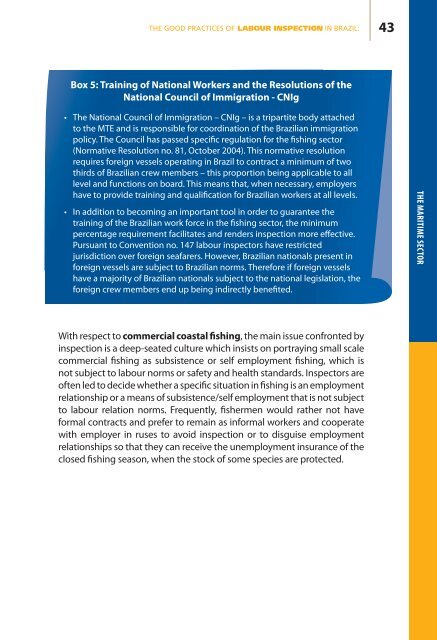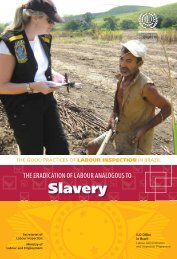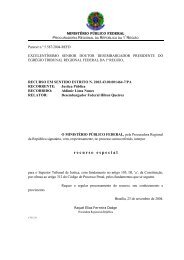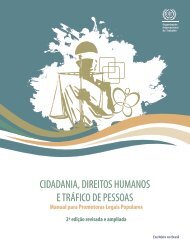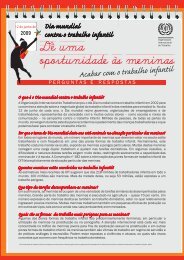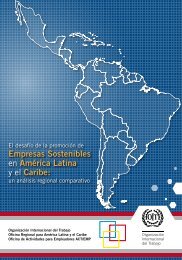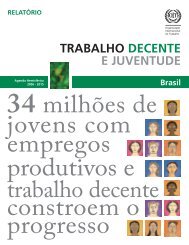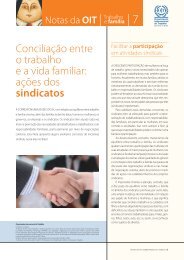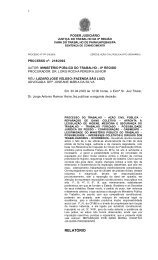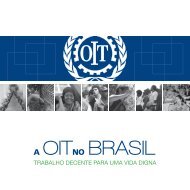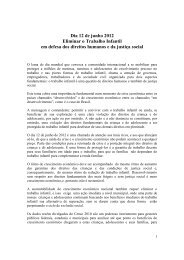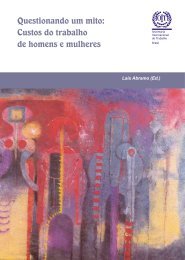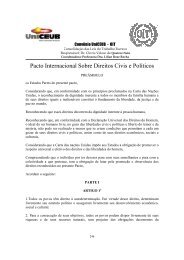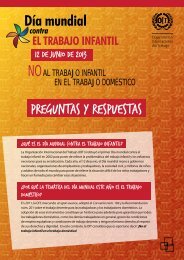The Maritime Sector
The Maritime Sector
The Maritime Sector
You also want an ePaper? Increase the reach of your titles
YUMPU automatically turns print PDFs into web optimized ePapers that Google loves.
THE GOOD PRACTICES OF LABOUR INSPECTION IN BRAZIL: 43Box 5: Training of National Workers and the Resolutions of theNational Council of Immigration - CNIg• <strong>The</strong> National Council of Immigration – CNIg – is a tripartite body attachedto the MTE and is responsible for coordination of the Brazilian immigrationpolicy. <strong>The</strong> Council has passed specific regulation for the fishing sector(Normative Resolution no. 81, October 2004). This normative resolutionrequires foreign vessels operating in Brazil to contract a minimum of twothirds of Brazilian crew members – this proportion being applicable to alllevel and functions on board. This means that, when necessary, employershave to provide training and qualification for Brazilian workers at all levels.• In addition to becoming an important tool in order to guarantee thetraining of the Brazilian work force in the fishing sector, the minimumpercentage requirement facilitates and renders inspection more effective.Pursuant to Convention no. 147 labour inspectors have restrictedjurisdiction over foreign seafarers. However, Brazilian nationals present inforeign vessels are subject to Brazilian norms. <strong>The</strong>refore if foreign vesselshave a majority of Brazilian nationals subject to the national legislation, theforeign crew members end up being indirectly benefited.THE MARITIME SECTORWith respect to commercial coastal fishing, the main issue confronted byinspection is a deep-seated culture which insists on portraying small scalecommercial fishing as subsistence or self employment fishing, which isnot subject to labour norms or safety and health standards. Inspectors areoften led to decide whether a specific situation in fishing is an employmentrelationship or a means of subsistence/self employment that is not subjectto labour relation norms. Frequently, fishermen would rather not haveformal contracts and prefer to remain as informal workers and cooperatewith employer in ruses to avoid inspection or to disguise employmentrelationships so that they can receive the unemployment insurance of theclosed fishing season, when the stock of some species are protected.


